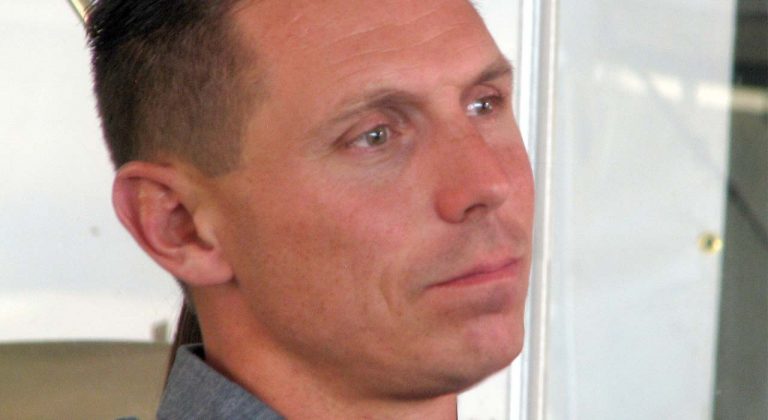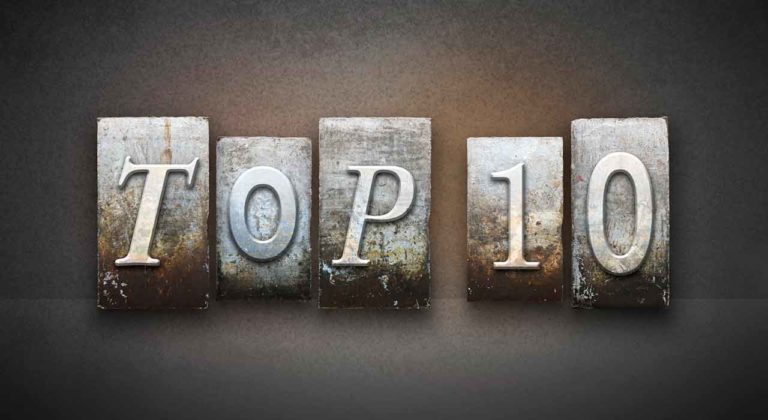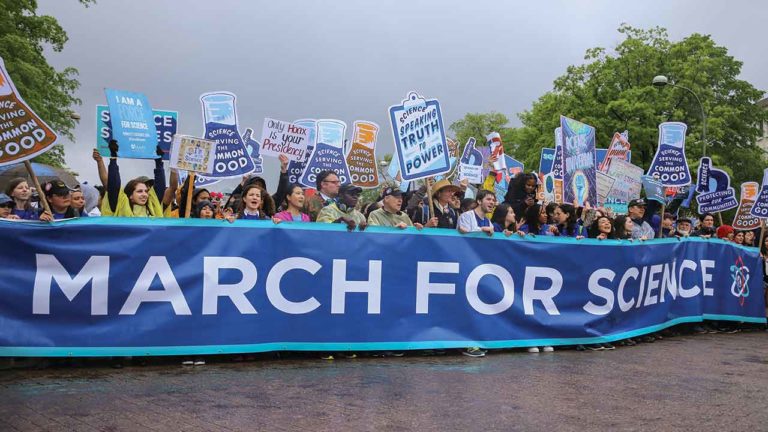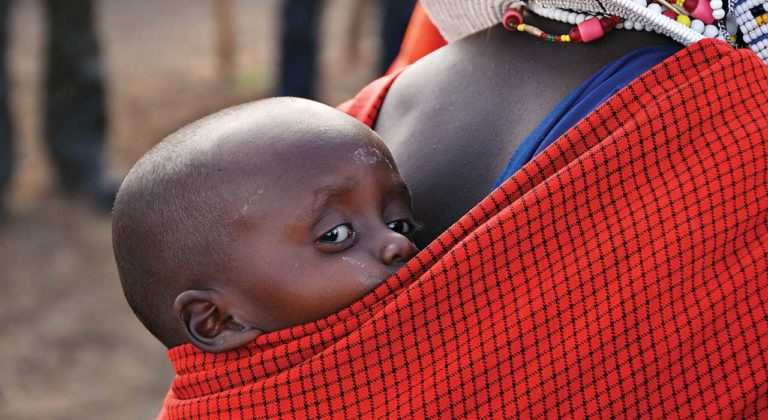Science politicized: when democracy doesn't suffice anymore
In the West most citizens take pride in their democratic institutions, pointing to how it’s through democracy that change can be peaceably pursued. Of course, not all change is positive. As Christians we understand that getting the government we deserve – the government that most of us have voted for – is not always a good thing. Why? Quite simply, the majority can be wrong. But that’s an insight available to us because we have an absolute standard – God’s Word – by which we can evaluate the “will of the people.”
But for the secular West, which has rejected God and his Word as their ultimate standard, democracy has largely been the replacement standard, and government is said to get its legitimacy from being supported by the largest number of voters. So it is with some interest, then, that we can see the idea that the best governments are democratically selected has come under serious scrutiny from some in the international community of scientists, and a new ultimate standard is being proposed.
Scientists vs. democracy?
For the last couple of years the influential scientific journal Nature has touched on this topic repeatedly. In editorials and other articles it has been suggested that some voter choices are more legitimate than others. In other words, not all votes are equally valid.
The new assertive stance of many scientists became evident during the April 22, 2017 “March for Science,” when tens of thousands of scientists marched in Washington and in at least 600 other cities around the world. A news item in Nature (April 27, 2017) said this event “may have been one of the largest-ever demonstrations in support of scientific research and evidence-based policymaking.”
These objectives may sound quite harmless, but the rationale was that the scientific agenda is under threat and needs to be more forcefully promoted in the political arena. These people apparently believe that the recommendations of scientists are not making it into policy choices nearly often enough. Thus an editorial in Nature on May 11, 2017 declared:
“…fears are increasing that anti-science forces are on the march. Indeed, on last month’s March for Science, a ‘war on science’ was frequently invoked as a reason for researchers to mobilize.”
Obviously the conflict cited is not overt, such as one with guns and other weapons. But it is a power struggle and the scientists want to make sure that they win. So who are the others involved in this conflict? Commentary in Nature labels the other side as “idiots” (December 1, 2016) or “dissenters, doubters and right-wing jackals” (January 5, 2017). Those are strong words to describe political adversaries. But this battle is intense.
Globalism vs. democracy?
The scientific view, at least as it is articulated by activists in Nature, includes a desire for governments to move further towards international, or even global control. This would involve taking it out of the hands of democratically-elected representatives. For example, a trio of advocates declared that countries need to put scientifically-advocated programs and ideals ahead of national priorities (Nature, October 6/16 p. 29)
But what does this mean?
Consider the case of the province of Ontario. A news item in the Edmonton Journal (November 21/17) reported that electrical power exports from sources with nearly zero carbon emissions (for example solar and wind energy) resulted in a loss to the province of Ontario of between $732 million and $1.25 billion over a period of 21 months. This is happening at a time when consumers in Ontario are suffering from exceptionally high electricity costs. This is an example of placing international priorities for climate control ahead of local interests.
The scientific community keeps promoting international agendas in other ways too. For example, a Belgian microbiologist declared in Nature (February 16, 2017):
“To prevent further breakdown of the EU, scientists must shout from the rooftops that many of our problems today can be solved only at a European, or even a global, level. We must challenge time and again the current populist view that countries are better off trying to address the most pressing problems on their own.”
Similarly, a Dutch sociologist from Utrecht declared that:
“Academics also have a moral obligation to protect liberal democracy. By promoting social and political pluralism, the system produces the circumstances under which researchers can do their jobs and science can flourish” (December 15, 2016).
The people who favor policies which protect the interests of the voters, are considered to be right wing, according to the scientific press. These people are also much less interested in “racial, gender and sexual identity politics” (Nature December 1, 2016) than are many in science and academia. An editorial in Nature (same date) declares that scientists and academics are rightly worried about allowing political discussion to include conservative and religious viewpoints. The scientists consider that this latter initiative would lead to “unacceptably broadening the limits of acceptable discourse – and freeing and normalizing people’s worst base instincts and a rhetoric of hate.” This editorial admits however that academics are often “tolerant,” but only of their own point of view.
Liberal democracy vs. populist democracy?
With recent electoral results that are the opposite of what left wing interests had hoped for, some scientists are warning about an increasing tension between populism and liberal democracy. Thus Matthijs Rooduijn, a Dutch sociologist, declared that there are two types of voters: those that support “liberal democracy” and those who support “populism” (Nature, December 15, 2016).
Obviously liberal democracy sounds very appealing, but what about populism? This latter term is what many scientists have suddenly adopted as a way to portray in an unfavorable light the opinions they do not like. Thus voters who make political choices that many scientists do not like are described as populists.
So what are populists? The implication seems to be that populists represent an ignorant mob (such as in the French revolution.) Alternatively a sympathetic definition in an editorial in the Edmonton Journal (November 10, 2017) stated:
“A populist political culture is one that includes a widespread belief in the moral and intellectual capacities of the ‘common people’ and thus a strong reluctance to defer control over decision-making to the state or other elites.”
Dutch sociologist Rooduijn elaborated on this point: “populists not only attack political and economic elites; they also target ‘snobby intellectuals’ in academia” (Nature, December 15, 2016). Well, fair enough. The Dutch sociologist nevertheless declares: “Academics also have a moral obligation to protect liberal democracy.”
A lead editorial in Nature on April 20, 2017 echoed the above sentiments:
“Social scientists rightly see this co-opting of far-right policies by mainstream parties as being as dangerous to liberal democracy as populist far-right parties themselves…”
It should be noted that some people succumb to the temptation to label anything with which they disagree as “far-right.”
Media and academic elites vs. democracy?
It is evident that scientists applaud some voter preferences but suggest that others are to be discouraged. Matthijs Rooduijn rejected the idea that voter preferences (as declared in the ballot box) should in general be translated into government policy. Thus he declares:
“Right wing politicians in the crop currently making headlines are populists in that they want the will of the people to be the point of departure for political decision-making. This ‘general will’ should, according to their populist message, be translated as directly as possible into actual political decisions” (Nature, December 15, 2016)
But the scientific view is to reject such an approach. There are many reasons such as climate change considerations or human rights that might discourage implementation of voter preferences.
Liberal democracy, according to views expressed recently in Nature and other scientific press, apparently promotes whatever the scientific community prefers: pluralism (many cultures all equal), internationalism, human rights that take priority over religious values, and a climate change agenda.
Populism apparently represents the opposite.
Sensible people, informed people, one hopes will not be discouraged by unflattering terms. Let the voters make their own choices without intimidation from the media and academic elites. Let us all be aware that “Science is only one of many factors and interests that a thoughtful politician needs to weigh when choosing a position on a complex topic” (Nature editorial May 11, 2017). Indeed that editorial ends on a high note, and so will we: “Name-calling and portraying the current political climate as a war between facts and ignorance simply sows division.”
Dr. Margaret Helder is the author of No Christian Silence in Science, a book every Christian teen considering a career in Science should read before heading off to university....

























